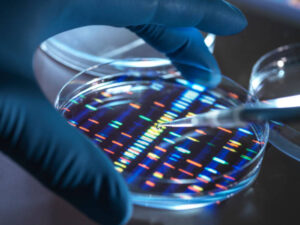Knowing the biological connection between a baby and its prospective father before birth can offer significant peace of mind and help with preparation for the baby’s arrival. But is it possible to conduct a DNA test while pregnant? The short answer is – Yes. However, it involves a more specialized procedure known as prenatal DNA testing. In this blog post, we will explore prenatal DNA testing, its methodologies, benefits, and considerations.
Understanding Prenatal DNA Testing
Prenatal DNA testing is a specialized form of DNA testing that can determine the paternity of a baby before it is born. It involves extracting the baby’s DNA from the mother’s bloodstream or from the cells in the womb and comparing it with the DNA of the alleged father. This test offers the opportunity to confirm paternity during pregnancy, eliminating the need to wait until the baby is born.
Types of Prenatal DNA Tests
There are primarily two types of prenatal DNA tests: Non-Invasive Prenatal Paternity (NIPP) tests and invasive prenatal paternity tests.
Non-Invasive Prenatal Paternity (NIPP) Test
The NIPP test is a non-invasive method that analyzes cell-free fetal DNA (cfDNA) in the mother’s bloodstream. From the seventh week of pregnancy, the baby’s DNA starts circulating in the mother’s blood, making it possible to conduct a paternity test.
In a NIPP test, a simple blood draw from the mother and a buccal swab from the alleged father is required. The baby’s DNA extracted from the mother’s blood is compared with the alleged father’s DNA to confirm a biological match. This test offers the advantage of being entirely risk-free to the mother and the unborn child.
Invasive Prenatal Paternity Tests
Invasive tests, such as amniocentesis or chorionic villus sampling (CVS), are performed by collecting DNA samples directly from the womb. However, they carry a small risk of miscarriage, and they are typically performed only when necessary for diagnosing genetic disorders or other medical reasons. For paternity testing, the non-invasive method is widely preferred due to its safety and accuracy.
The Accuracy of Prenatal DNA Tests

Like postnatal paternity tests, prenatal DNA tests are highly accurate. They can provide a probability of paternity of 99.9% or higher when the alleged father is the biological father. On the other hand, if the alleged father is not the biological father, the probability of paternity will be 0%.
Things to Consider
While prenatal DNA testing offers many benefits, it’s important to consider a few points:
Timing: NIPP tests can be performed any time after the 7th week of pregnancy. The choice of when to test depends on your personal circumstances and medical advice. At Smart DNA, we only conduct NIPT test from the 10th week of pregnancy
Consent: As with any DNA test, proper consent is required. The alleged father must give consent for his DNA to be tested.
Choosing a Lab: Ensure to select a reliable, accredited laboratory to perform the prenatal DNA test. The lab should adhere to strict quality control measures to ensure the accuracy of the test.
Conclusion
If you wish to establish paternity while you are still pregnant, prenatal DNA testing provides an accurate and risk-free solution. As technology continues to evolve, prenatal DNA tests have become increasingly accessible, reliable, and safe, offering peace of mind much earlier than ever before.
At Smart DNA, we are committed to providing highly accurate, confidential, and ethical prenatal DNA testing services. We understand the significance of this decision and are here to guide you throughout this process, ensuring your journey to discovering paternity is handled with utmost care and professionalism

